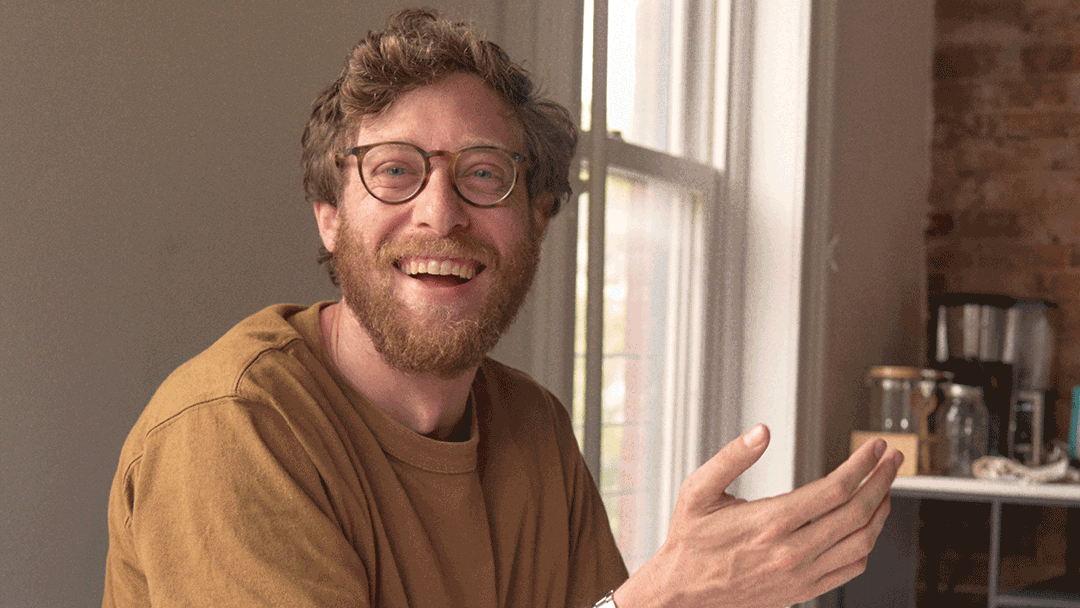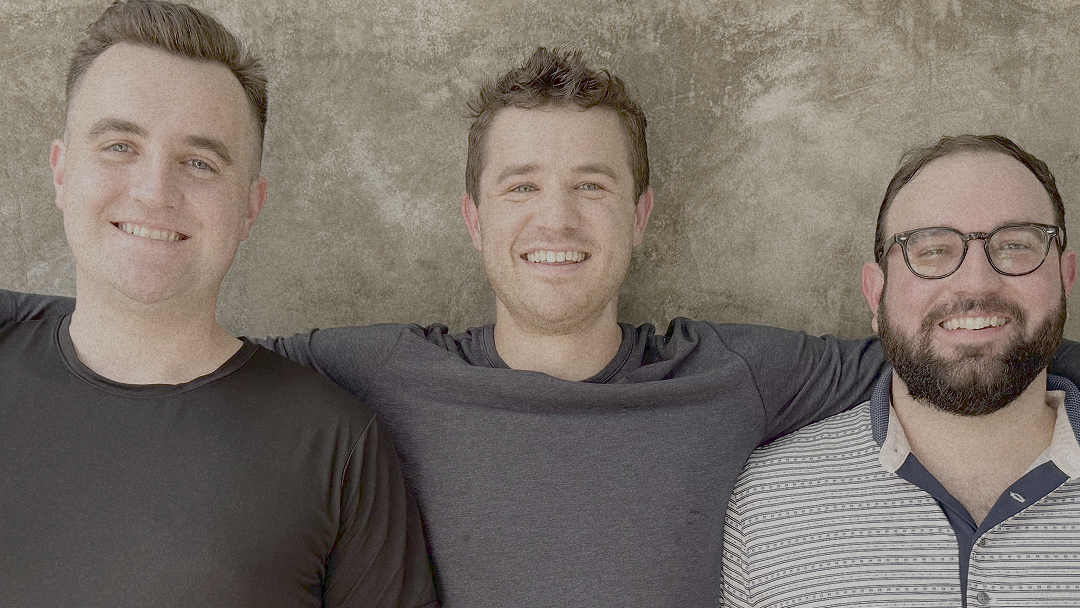Q&A: Allan Maman, co-founder & CEO of Bloom

Each month, we put the spotlight on a founder in the Mercury community to learn about their story and the company they’ve built. This month we sat down with Jijo Sunny, Allan Maman, co-founder and CEO of Bloom.
As a teen, Allan Maman was frequently suspended from school for ditching class to work on various side hustles. One of those side hustles — 3D-printing spinning gadgets and selling them online — earned him a small fortune and the ire of teachers everywhere for igniting the viral fidget spinner trend. Leveraging that success, Maman went on to convince two 2020 presidential candidates to hire him as a political strategist, granting him the creative freedom to introduce memes like #Yanggang into the political lexicon.
Now, after founding, growing, and selling several startups, Maman is finally back in the classroom — this time, a virtual one. With Bloom, he and his co-founders hope to help young people learn how to make informed investments. With a curriculum of interactive lessons, some of which are taught by Ivy League professors, the app rewards users for their learning with stock points called “oinks.” Read the full Q&A to find out how the idea sprouted.
This interview has been lightly edited for clarity.
How did you first learn how to invest?
I started off with one of those older custodial TD Ameritrade accounts through my dad. Initially, I tried to pick investments in Apple, Amazon, and all those other big names. And then, based on what I was seeing, I wanted to figure out how I could make more money in a shorter amount of time.
Unfortunately, the way to actually be a good investor is to have long-term thinking — that's something that I struggled with initially. It kind of made me realize that I should probably educate myself about making longer-term assessments versus trying to get rich quickly.
How did you and your co-founders come up with the idea for Bloom?
It started out as a teen investing app because we realized that it was pretty hard to start investing as a teenager. While a lot of teens want to start investing, there isn't really a way to do so other than using your parents' Robinhood account or a much older traditional bank with a boring, annoying interface.
Then we realized that when it came to financial literacy, people over 18 (particularly those aged 20–25) struggled with a lot of the same things that teenagers struggle with. There are also a lot of people who had investment accounts, but they didn't really know what to do with them. So we came to fill that gap.
So it seems like Bloom is the latest in a long line of entrepreneurial ventures you've been a part of. Can you walk us through how each of your ventures led to the next, from Fidget360 to #YangGang and Bloomberg, to all the startups (and acquisitions) that followed?
I got my start in entrepreneurship in high school when I built a company that was credited for being behind the fidget spinner trend. I'm someone with pretty bad ADHD, so I was looking online for solutions to solve that pen-clicking in class.
I came across all these Facebook groups where people were 3D-printing these spinners and selling them out of their garages. It was this very novel hobbyist-type thing. I was like, “I should try to make one using my school's 3D printers.” I started selling these spinners on Facebook and then a bunch of kids in my class wanted them, and then eventually everybody in my school kind of wanted to start buying them.
We started to really scale that up as a company through online ads and fulfillment. We had a factory in Greenpoint, Brooklyn that was 3D-printing them and then we eventually went to China to start mass-producing them. After this, I had a bit of money and my parents basically said, “Either you go to college or we kick you out of the house.” And because I had some money saved up I moved to the city (it was only an hour south).
I started working at a bunch of smaller startups like Nuggs that were more direct to consumer, and more scalable to some extent. Then I reached out to Andrew Yang after seeing him on a friend's Instagram story. I was like, “Oh, this is another Asian-American dude. If I was 12 years old and I saw this guy on TV, it'd be pretty cool.” So then that's what made me reach out to him.
I was a pretty early person on their team, maybe employee number three or four. I kind of took what we learned from the fidget spinner stuff — running all these ads on meme pages and more guerrilla-type marketing — and applied that to his campaign. His campaign was kind of run like a startup where they had limited funds but needed to meet certain goals.”
After Yang, I went to Michael Bloomberg. Bloomberg was more of a big company-driven thing where they didn't really care about saving costs. They kind of just wanted to spray a bunch of money out. And then they kept me on retainer for two years, which was nice.
So that was my political side. Besides the politics stuff, I was basically just trying to learn as much as possible when it came to growth. I was like, “If I can get really good at certain levels of growth when it comes to direct-to-consumer, software, consumer social, and things like that, then hopefully in X years, I'll just be a machine to some extent, where I can hopefully grow anything.” So I tried to basically just get as much experience as possible when it came to learning about growth.
After Bloomberg, I went to work for this consumer social app called Itsme, which was an Omegle-style avatar app for teens. During COVID it was really popular — I think we grew to about 1.5M downloads and then I ended up leaving.
After that, I was like, “Okay, growing apps is relatively easy. Let me just try to make my own app.” So then I built this app called Pintok, which was a “saving TikToks to folder” app before TikTok made it a thing. That one got like 100,000 downloads in the first month and a half, roughly speaking. And that was off of less than $3K–$4K total in costs. And then I sold that to a company called Faves Media. It wasn't a lot of money. It was just a nice flip and kind of saved me some time.
Given your personal experience with education, if you could redesign the pre-collegiate education system, what would it look like?
In my specific case, what would have made school work for me is if they taught more practical subjects. While history is obviously very, very important and you want to have these fundamentals of understanding how the world operated at some point, I think it's also interesting to see how the world operates on a day-to-day basis for your life.
I think it's really unfortunate that the basics of saving money, taxes, and credit cards aren’t taught, especially since when somebody turns 18, they can then open up 10 credit cards and take out a loan. I think that's why we initially started Bloom. We wanted to make sure that these teens were properly educated and now it's even people that are over 18.
How do you distinguish between something that you know is gonna be a fleeting fad or a lasting shift?
In regards to what can last well, I think it’s about what you can see yourself talking about a month from now. If you're talking about the same trend that happened a month ago, there's a pretty high chance that there's a lot more longevity to it than you really think.
It just comes down to mental retention. If that trend can be relevant and funny two weeks from now or a month from now, then you probably know that it has some longevity, but if it's one of those things where it dies out in a month or in a week, then it probably will not last too long. By the time a company gets on that trend two or three months down the line, it'll just be irrelevant.
Speaking of trends, do you think there's a danger to investing becoming trendy? Why is Bloom needed now?
Yeah, I think there absolutely is a danger to investing being trendy. I mean, if you look at what happened with WallStreetBets and how a bunch of people lost money on that because they thought, “Oh, let's just all go collectively invest in these things,” and unfortunately, it wasn't really backed by any actual data.
I think the most important thing when it comes to investing is knowing what you're doing and understanding what it means when you're buying a stock and why you're investing in this company. Truthfully speaking, if you're buying it from reading about it in an internet forum, it's probably not the best thesis to be using when it comes to succeeding in the long term. And if you're going to be a platform where you let people start to invest, you need to make sure that you're educating them and that you're doing it with good intentions.
How do you know when it's time to move on from a venture?
In the past, all the things I did were more of a solo entrepreneurship-type thing. They weren’t anything crazy. There wasn't a ton of money raised. As the stakes get higher and higher, you need to put other people above yourself. It's not like Shopify where you can just try selling something else. You need to make sure that you're willing to run it out to the end, and whether the end is a success or not. Until you're at either of those points, I don't think you should quit or just stop.
How has the impact of your entrepreneurial journey on your personal life influenced your outlook on achievement?
That's a great question. I would definitely not consider myself very successful yet, but I think it's very important to set these values down prior to working so that you can understand what you enjoy and make sure that it's not a hedonic treadmill.
So for example, I make sure I can take my dog to the park, and once every two weeks, I can get dinner with friends. As long as you have these baselines, it's totally fine. You're going to have lows, but you're also going to have highs. If you're going to jump into running a company, you're definitely not doing it to have fun and to wake up super happy and go to bed happy every night.
Stocks or ETFs?
ETFs from a de-risk standpoint in the long term.
How has Mercury helped your company?
We use Mercury's Treasury product a bunch, and I think they make it very easy to know where your money's going and how it's growing. If you compare it to going to a bank and buying a CD, it's a lot more seamless.
Interested in being featured as a founder spotlight in an upcoming issue of The Messenger newsletter and our blog? Sign up for a Mercury account, then submit your company for consideration here.
The references in this article are the opinions of those featured and is not intended to be investment advice. Seek a duly licensed professional for investment advice.



